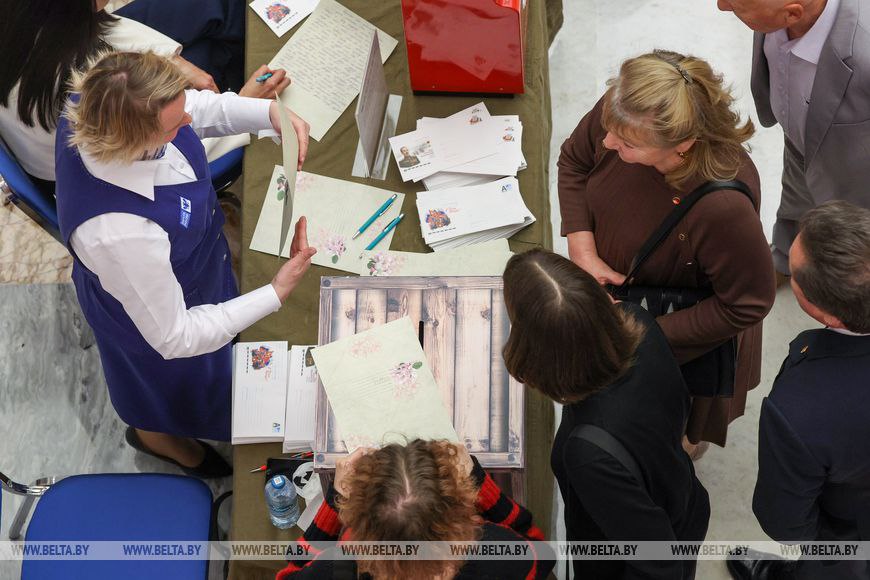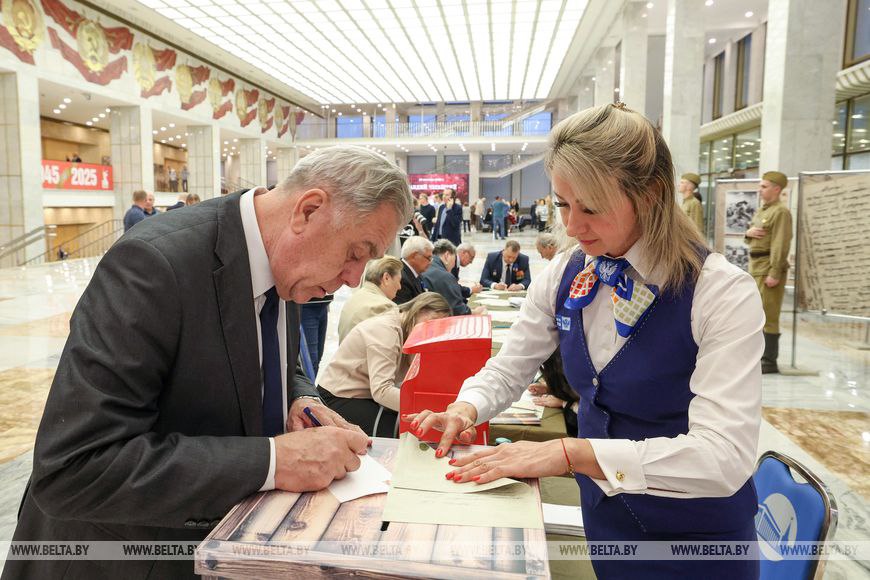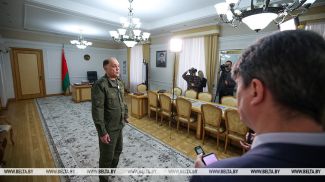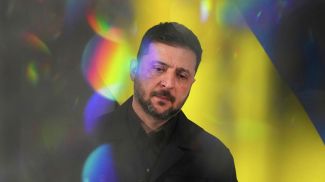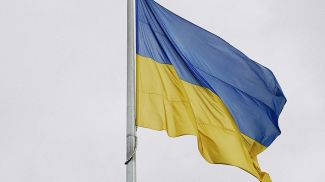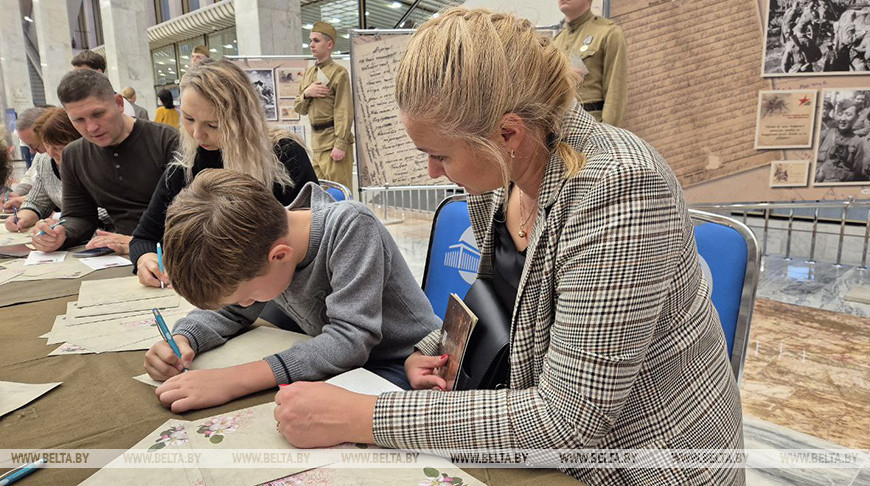
MOSCOW, 23 September (BelTA) – The Belarusian Telegraph Agency (BelTA) presented the exhibition “Destinies folded in triangle” as part of the Every Third requiem concert in the Kremlin Palace in Moscow.
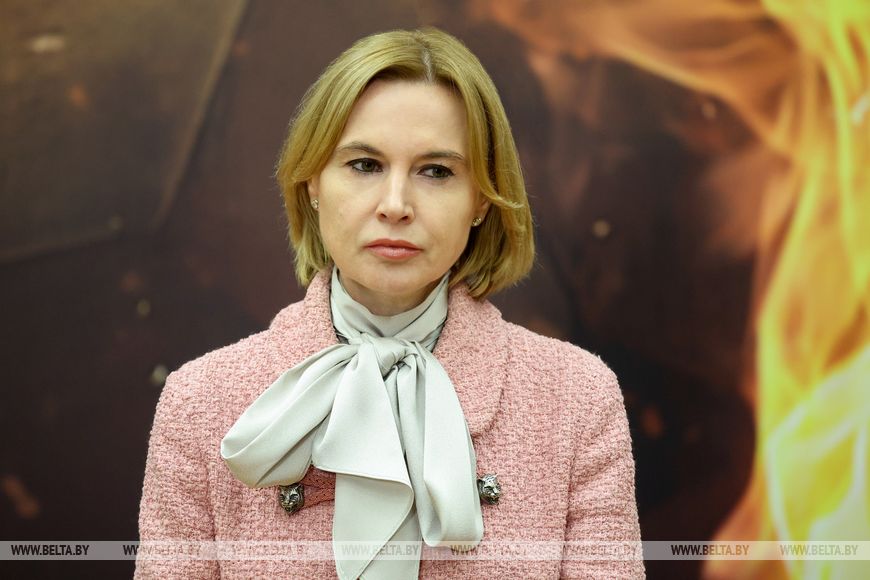
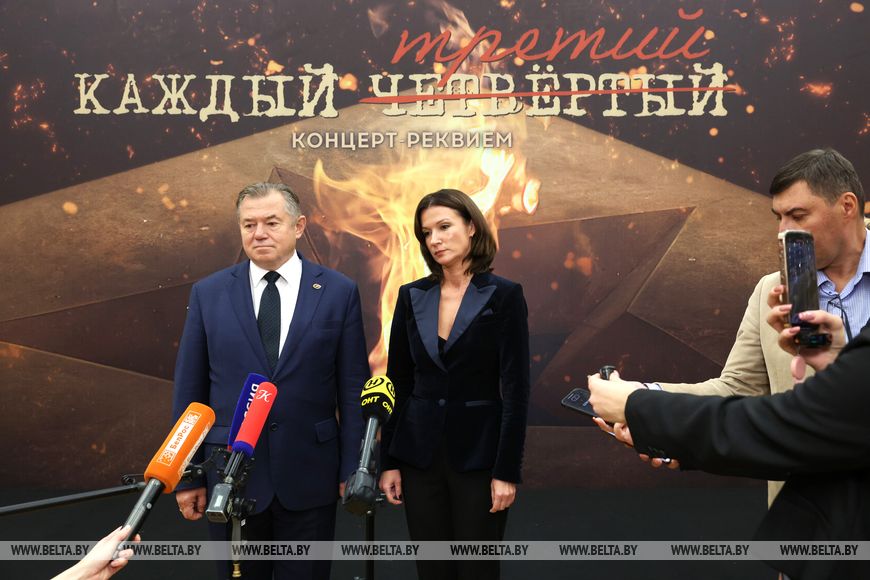
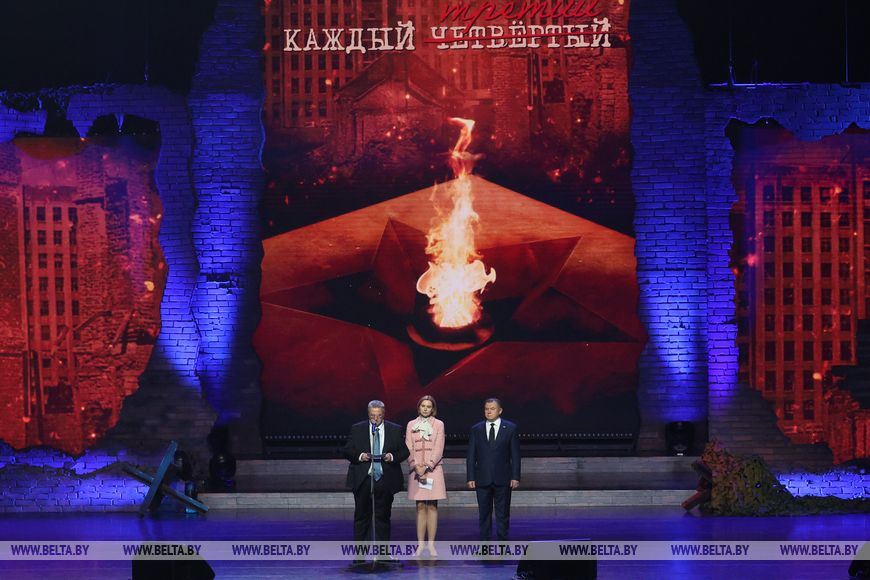
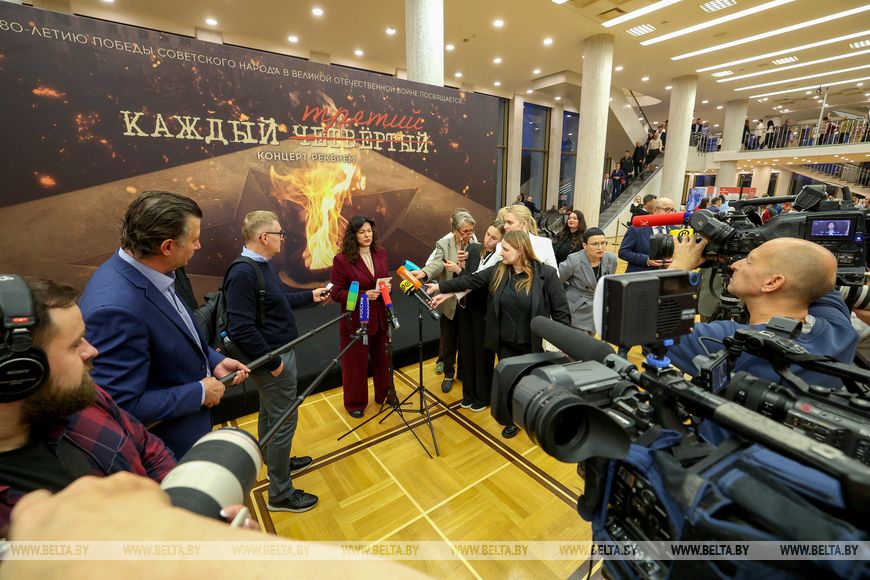
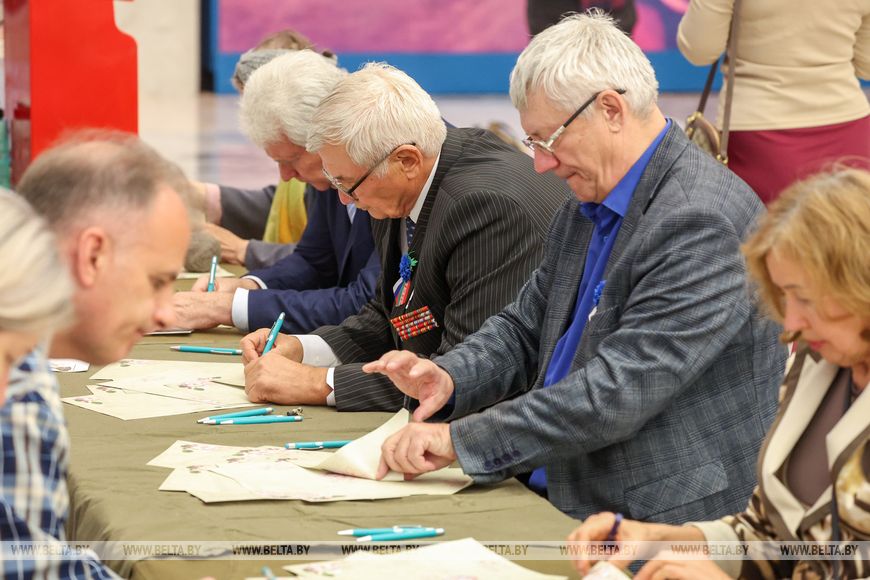
The Destinies Folded in Triangle photo exhibition is based on the Internet project with the same name that BelTA and the Belarusian State Museum of History of the Great Patriotic War have launched. The project tells the story of the destinies of those, who fell during the war, and those, who survived the entire war, the story of famous and quite ordinary people with genuine personal letters of that period, postcards sent by soldiers to their families, and archive photos.
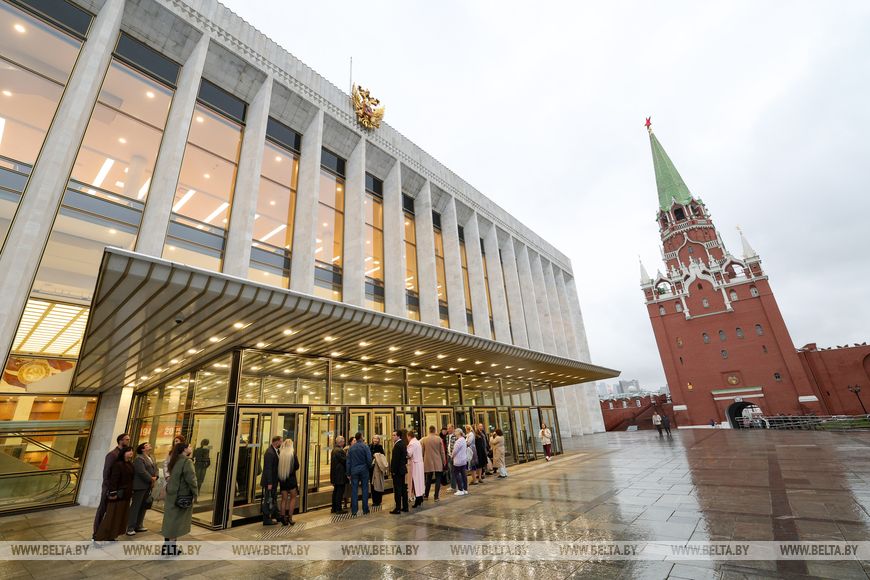
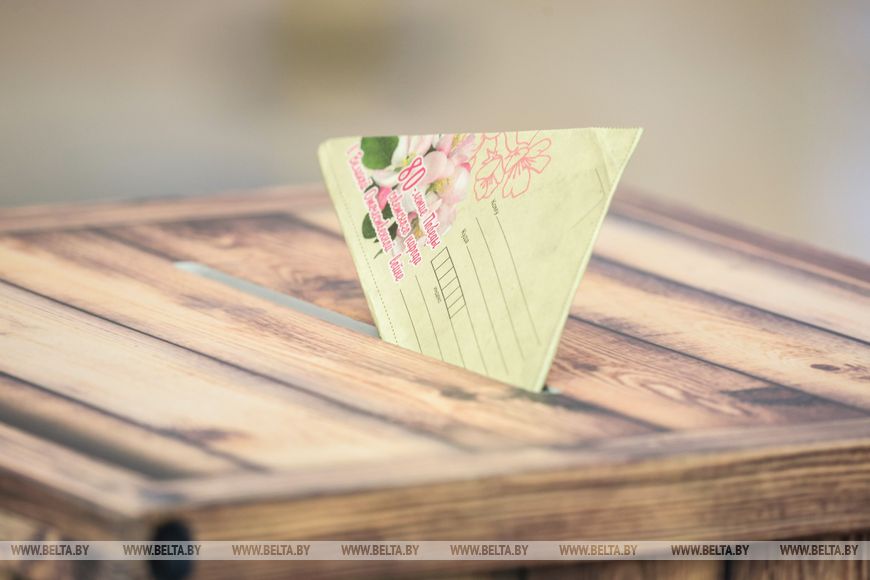
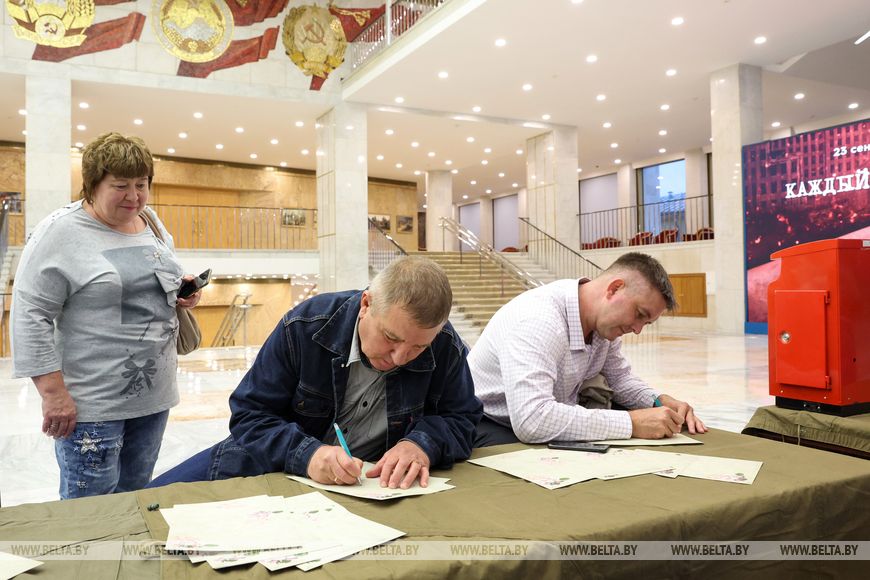
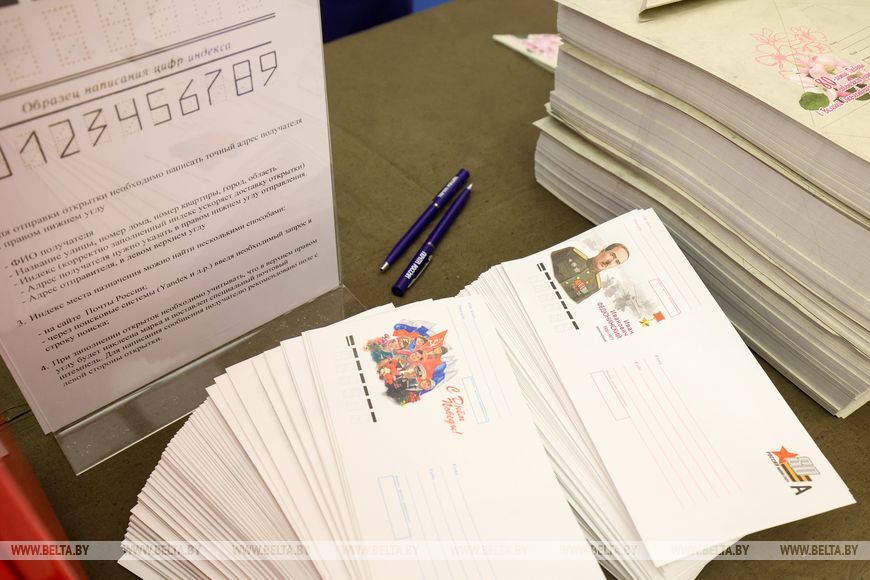
The presentation was interactive. Young men with soldier’s letters folded into triangles in their hands attracted concert goers with their look while Russian Post workers invited any takers to send letters to Belarus and Russia. Some wanted to pass on good news to their friends and families. Some sent letters to their loved ones. People could also send letters to themselves.
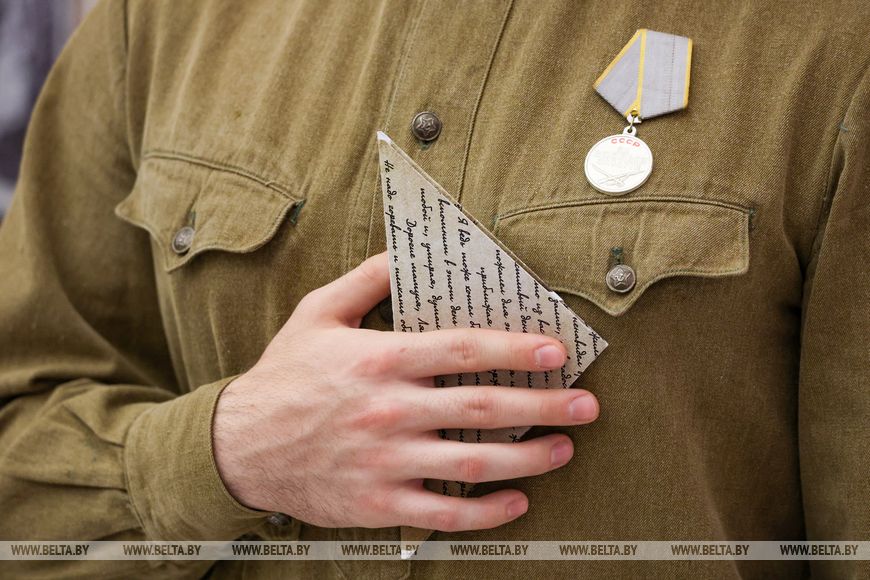
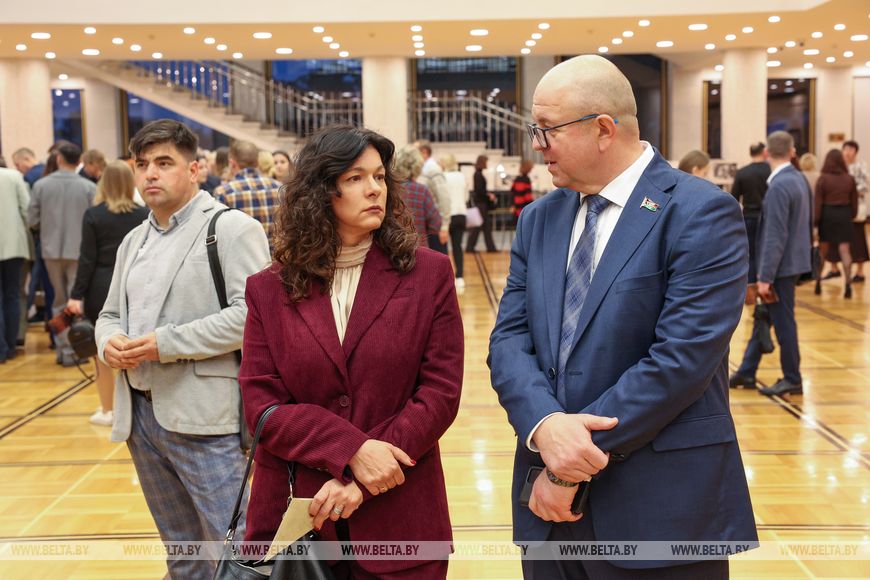
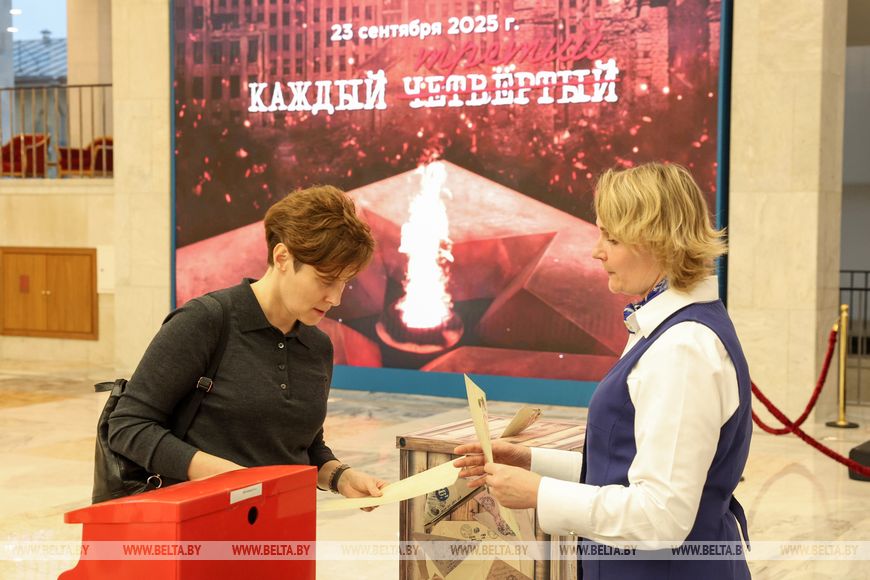
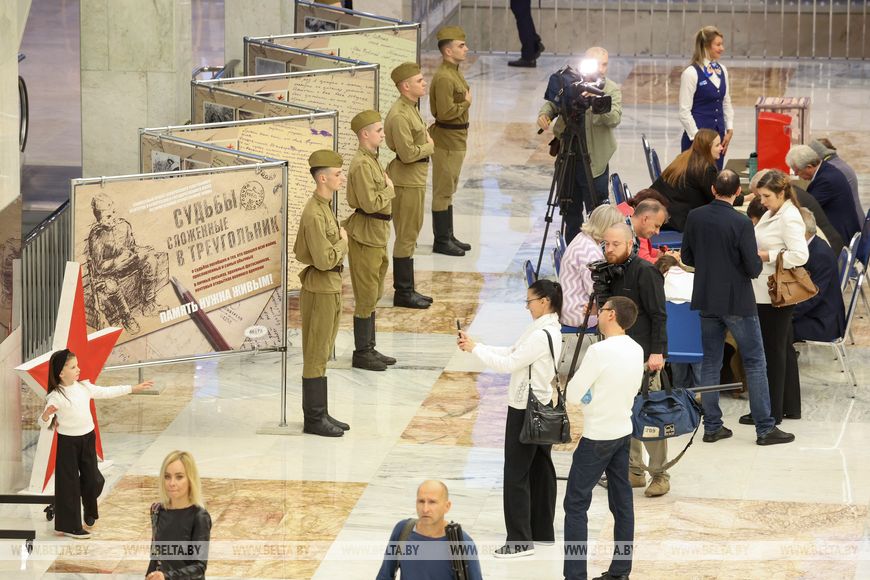
Zinaida Petrovna Maltseva was one of the first people to visit the exhibition. As she was writing her letter, the 85-year-old Moscow resident shared the fact that for 15 years she has been practicing knitting and painting and has been going to the community center Gaidarovets. Exhibitions of her art works have been organized in many Moscow streets. When the Great Patriotic War of 1941-1945 began, Zinaida Petrovna Maltseva was only 10 months old. “I went to school in 1947. I didn’t know my father. I was born when he was no longer around but my brother participated in battles and was injured there but I have nothing left from him although he came back from the war. And a cousin took part [in fighting]. He was a pilot,” she shared.
Zinaida Petrovna Maltseva remembers well that girls were carrying victory flags past her windows when she was 4.5 years old. “I also remember very well how Germans asked us to give them bread in exchange for a harmonica. But people themselves didn’t have [bread],” she recalled.
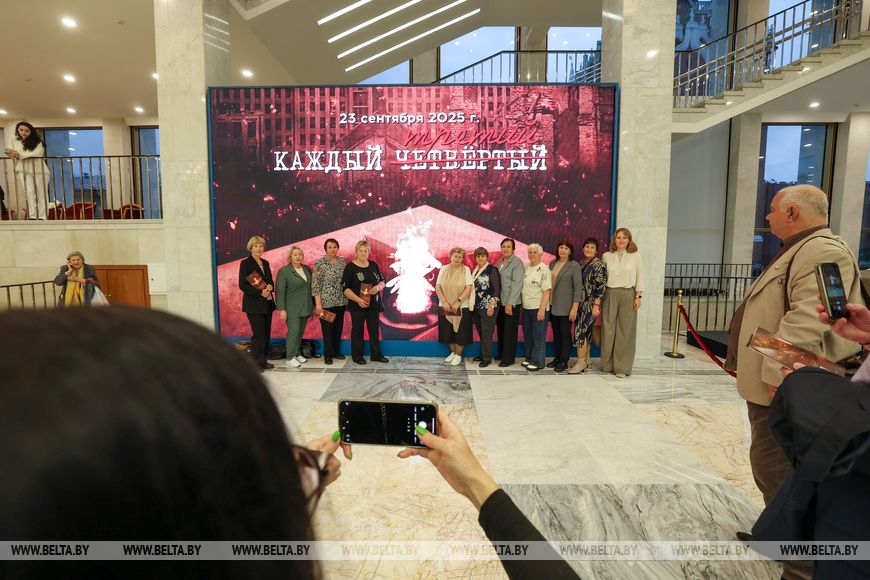
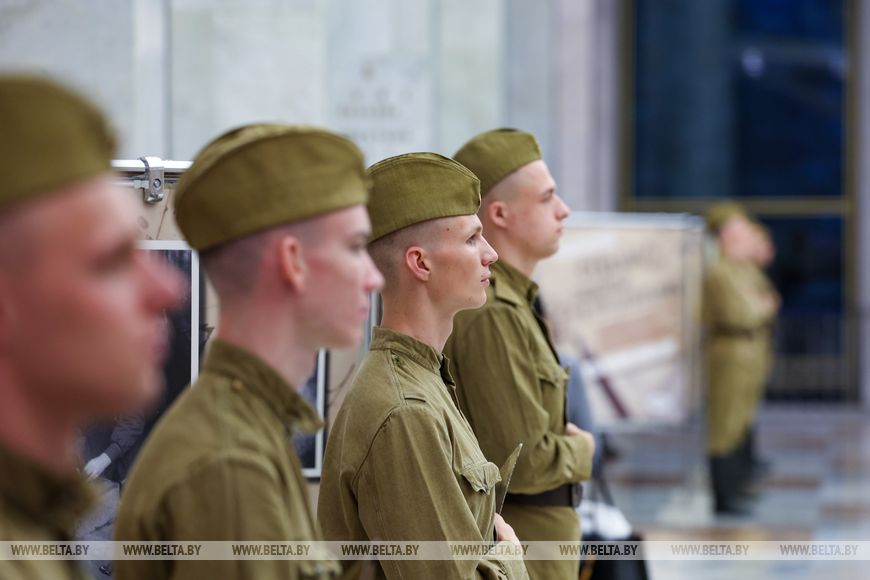
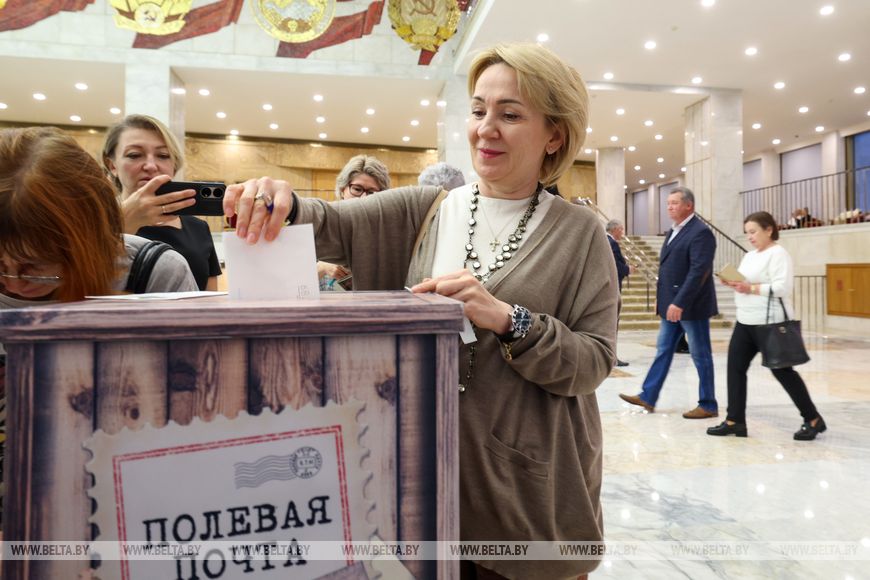
It was not the first time the viewer Tatiana Vladimirovna had attended such a concert. “Every family has people, who died in this terrible war. Seven people died in our family. The grandfather and the grandmother had nine kids. Today we recall their heroic deeds and honor their memory,” she said.
After sending a letter to her daughter Yekaterina Primolennaya said that her key wish is to see a peaceful sky above the heads of children. “I wrote it inside the triangle envelope to my daughter. I wished her peaceful skies and happiness. We are already happy because we exist. We have to remember it and appreciate this invaluable memory,” she is convinced.
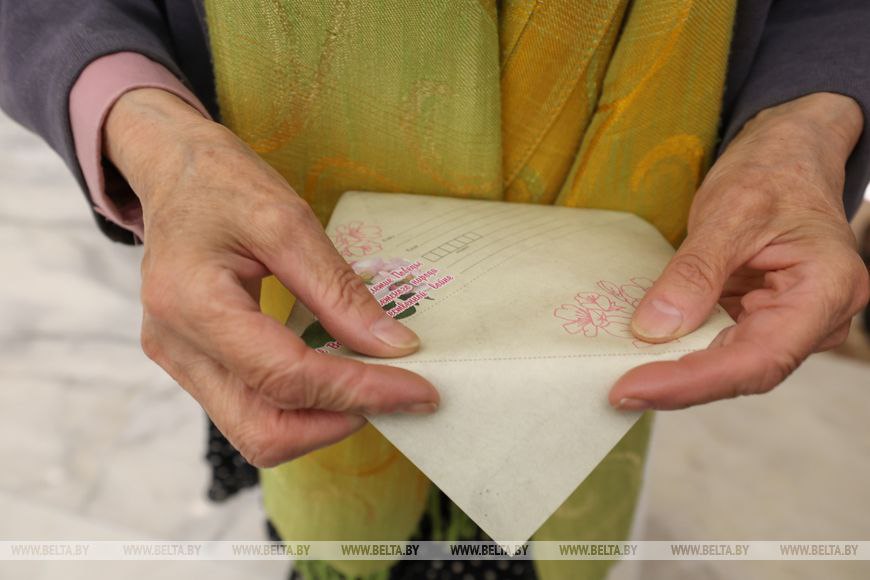
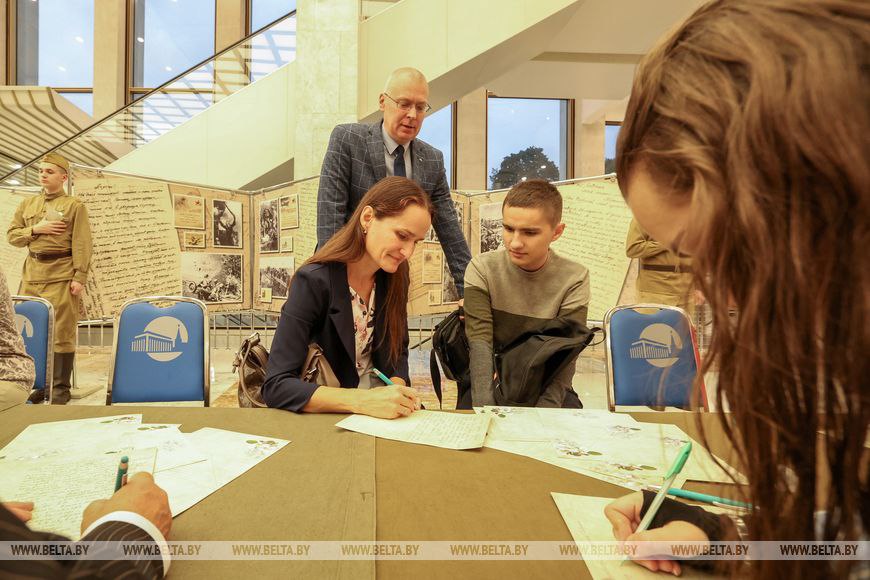
Young people also came to the Kremlin Palace on this rainy day to deepen the historical memory. For instance, Sofia. She believes that it is important to arrange events like the field post office because through them one feels the connection between the past and the present. “It seems to me that thoughts are manifested in better ways through written letters. And with every written sentence one wants to write more kind words, the most pleasant ones. It seems to me that it connects people even more. You put your soul into it,” the girl said.
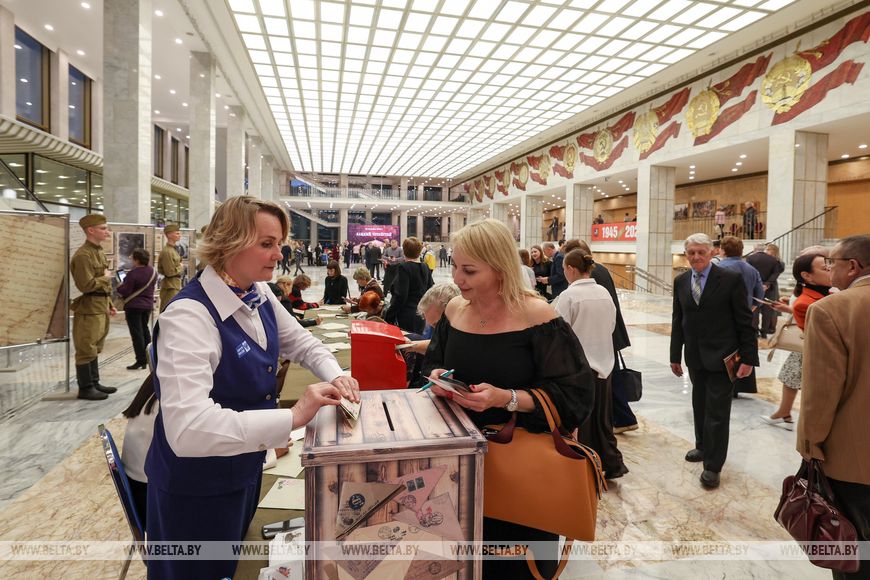
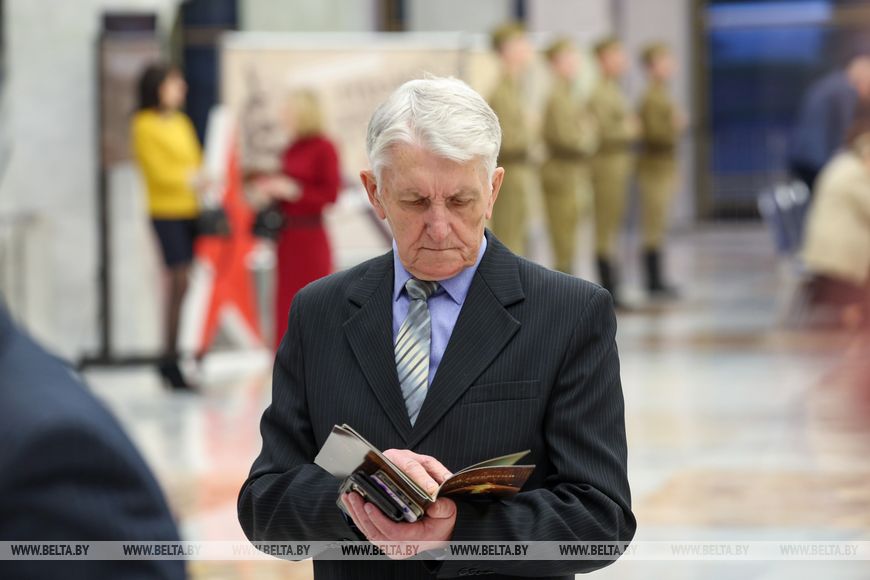
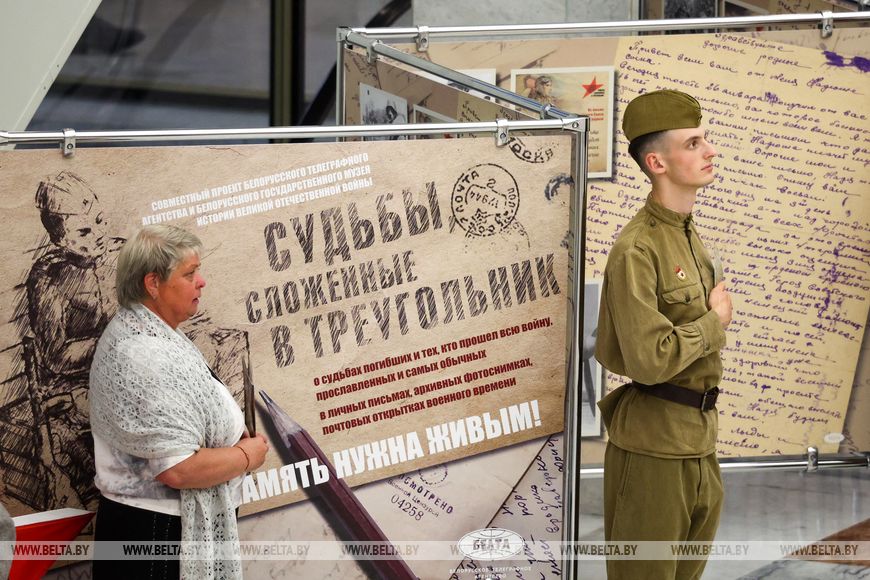
The Destinies Folded in Triangle photo exhibition attracted the smallest concert goers as well. We saw Natalya and a 7-year-old Artyom write his name on a letter. He had been looking forward to the concert and wrote a letter to his godmother. “It is very important to take good care of historical memory and pass it on to our children because we will not have a future if we don’t do it. Unfortunately, there is no future without a past. And kids are our future,” Natalya believes.
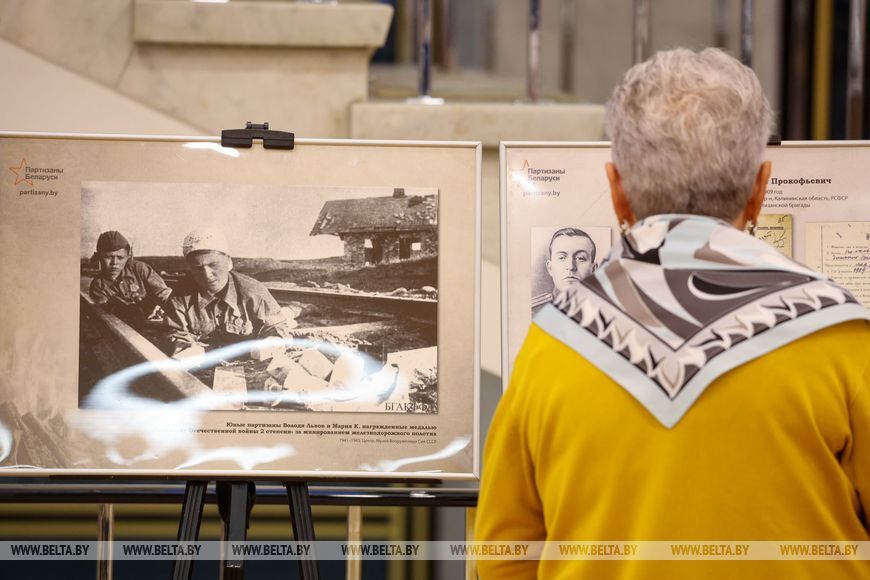
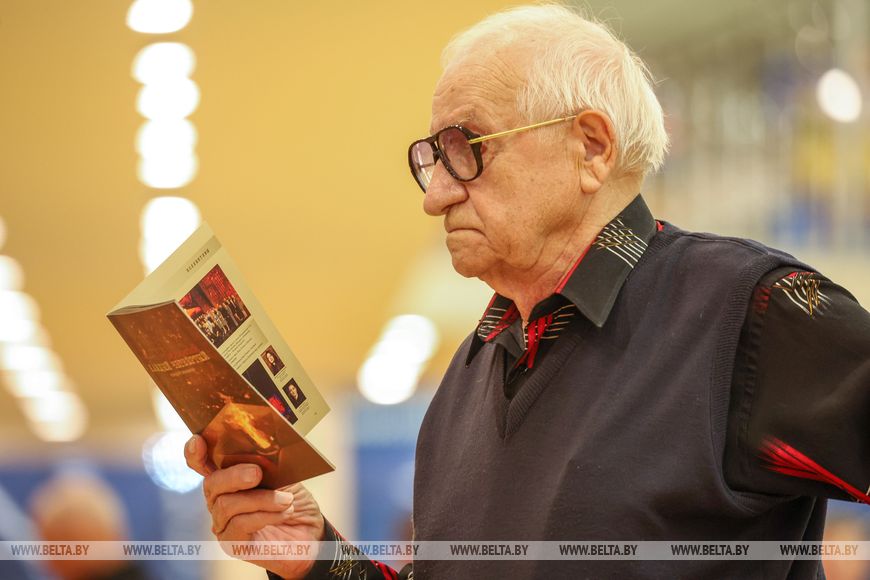
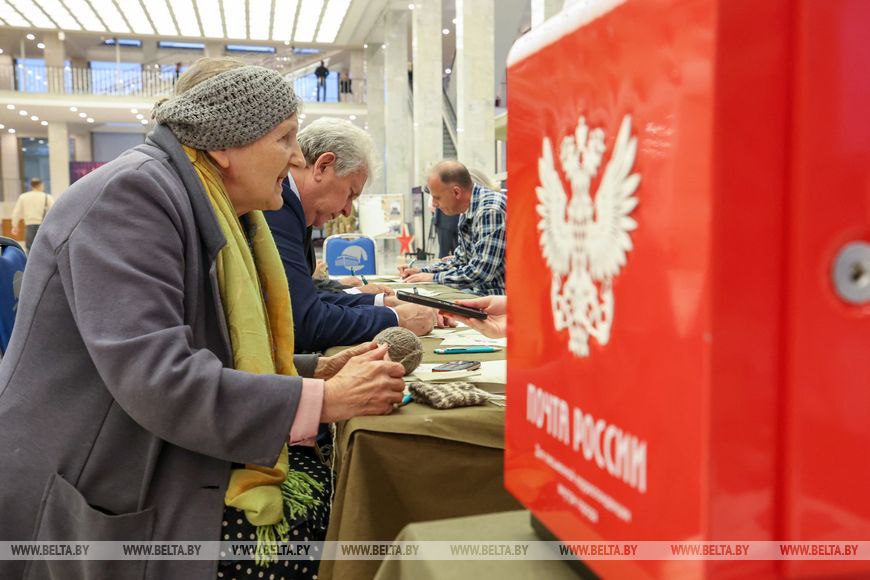
Such events can be described as a modern way to interact with viewers but BelTA Director General Irina Akulovich underlined that such projects are more like a bridge through time. “It is the strength of the truth, the strength of the Victory, the strength of the family, the strength of love. It is what always saved fighters during the Great Patriotic War,” she pointed out. “Today people write various letters but I can say one thing for sure: letters sent by soldiers during the Great Patriotic War and by contemporary people contain love, the truth, and the Victory but they never have room for disappointment or helplessness. I guess it is the most important and most potent thing.”
